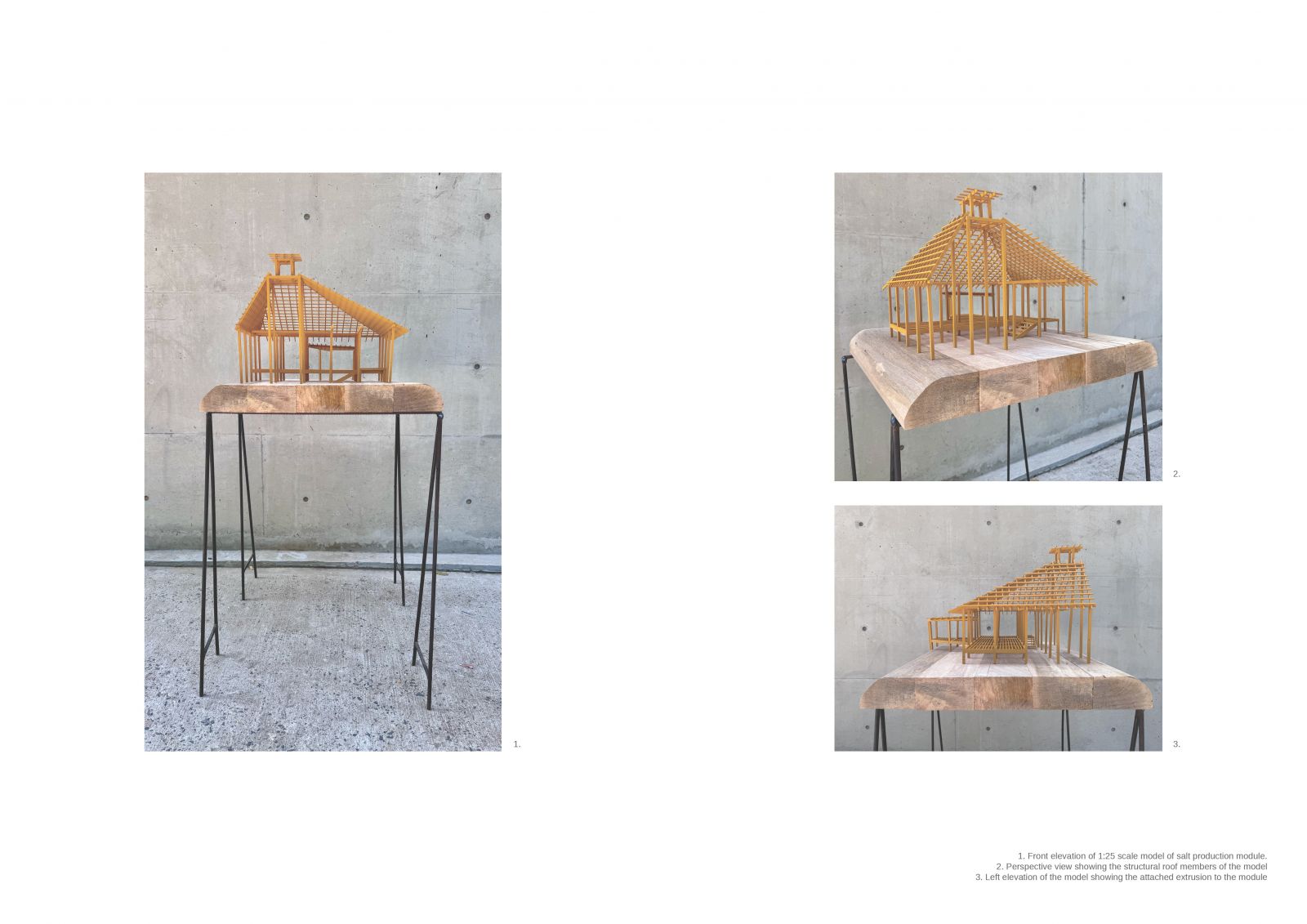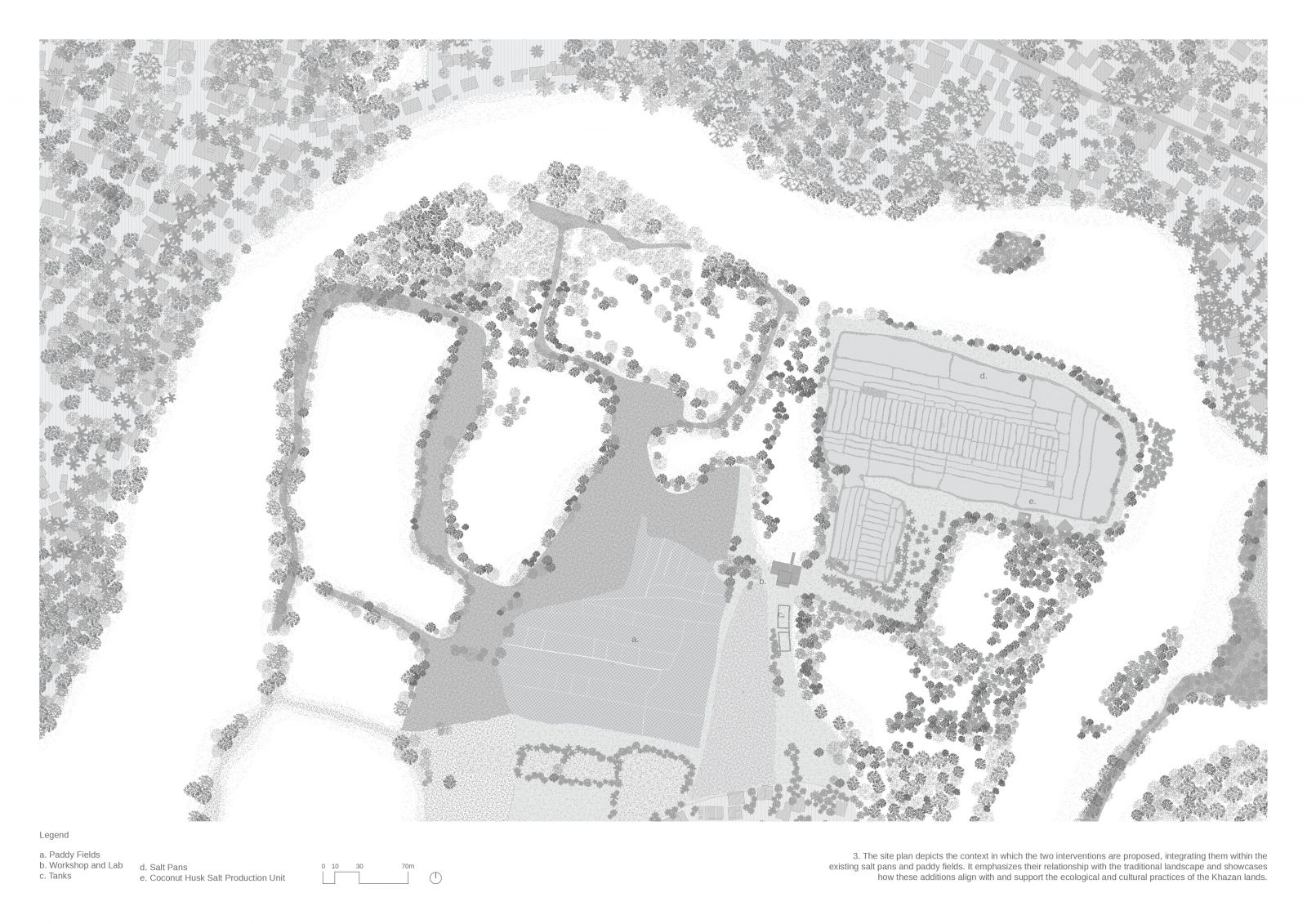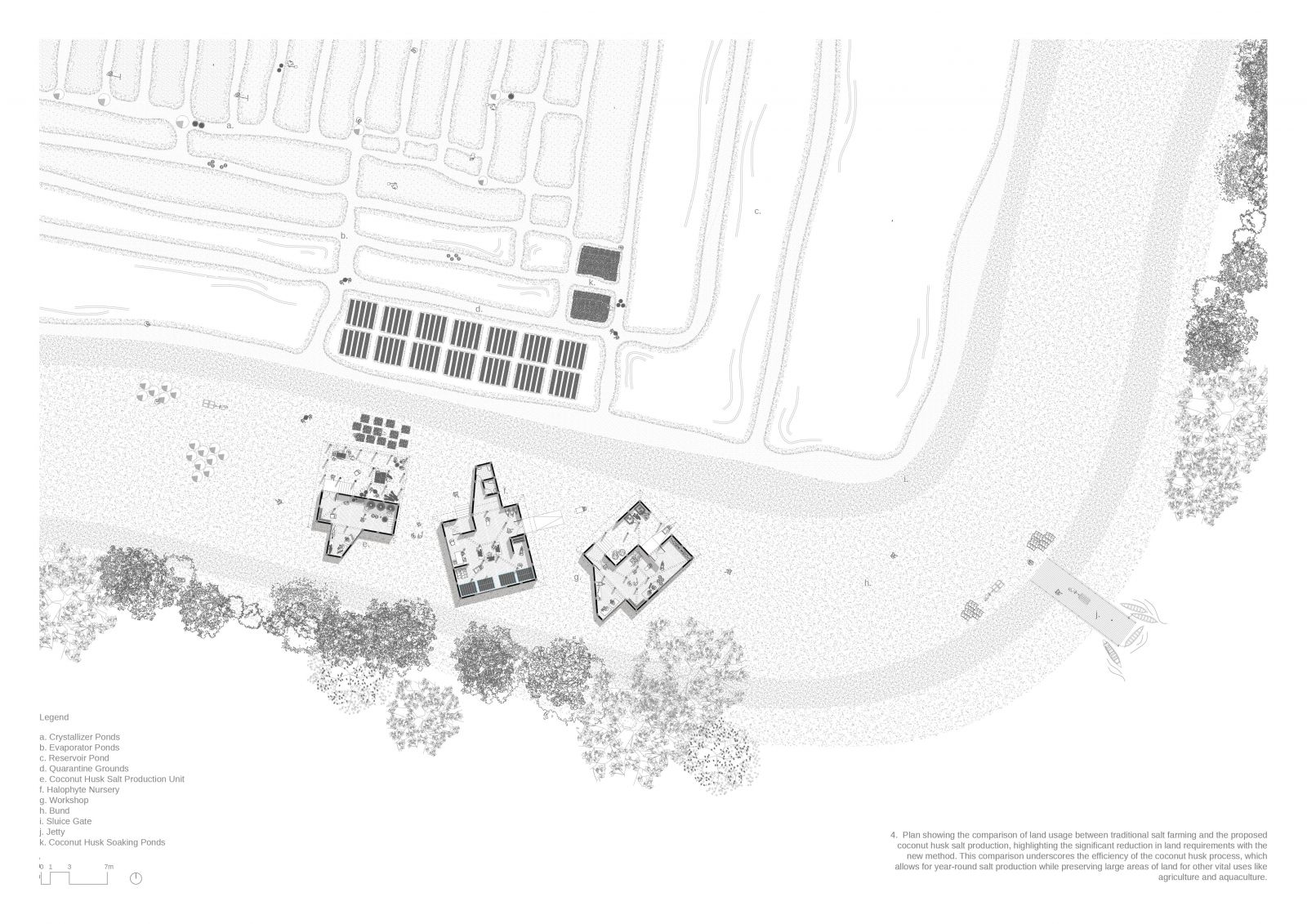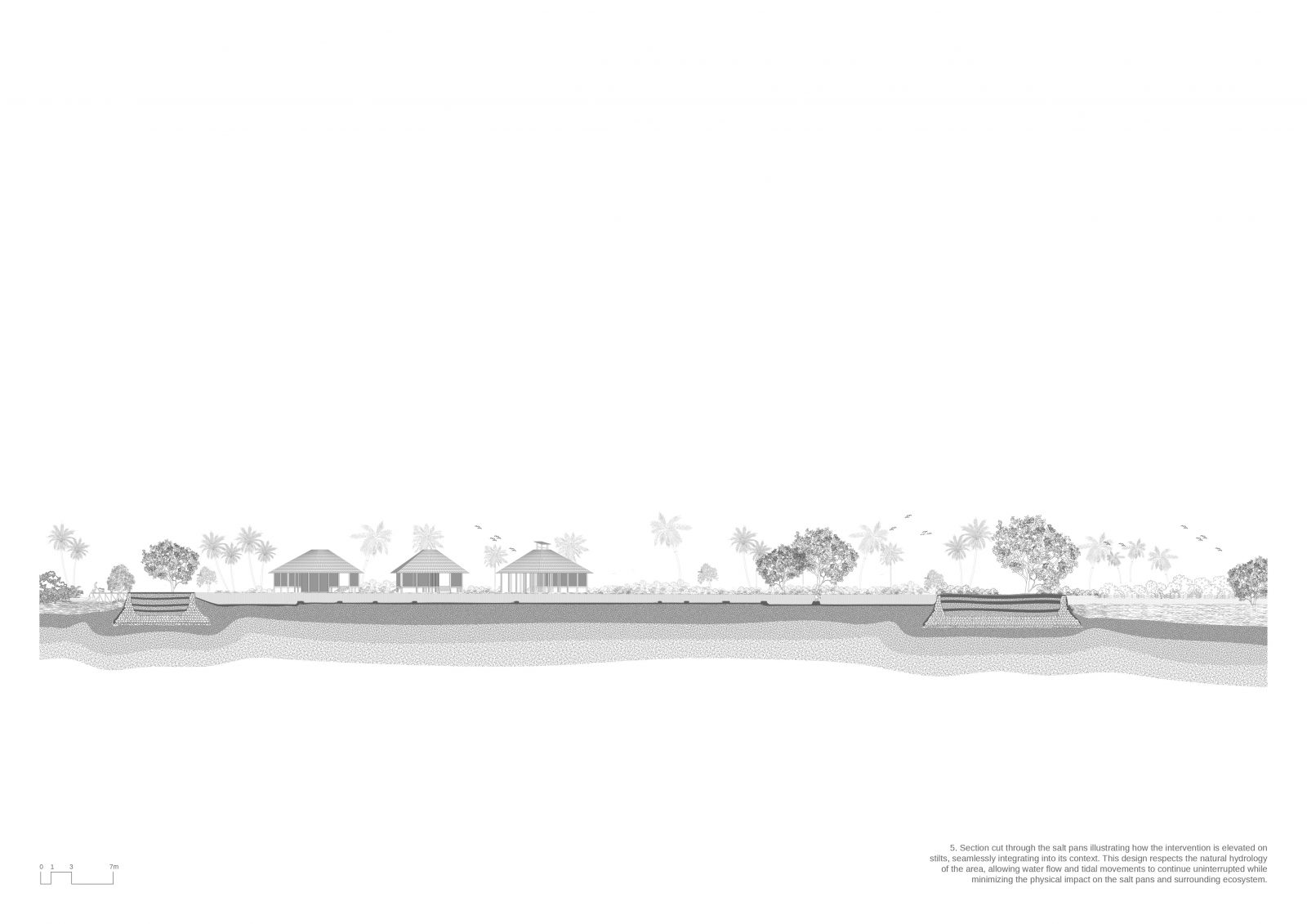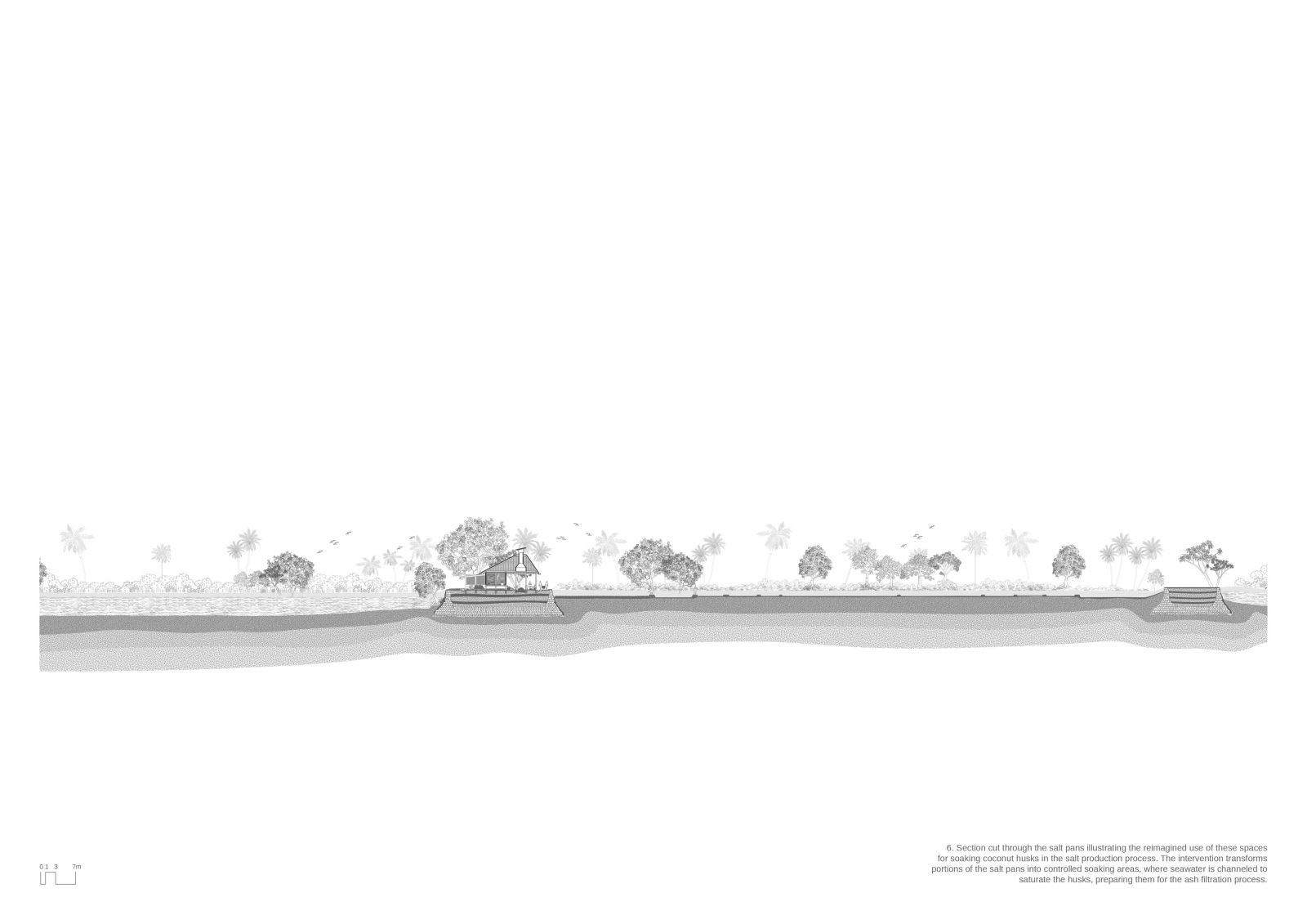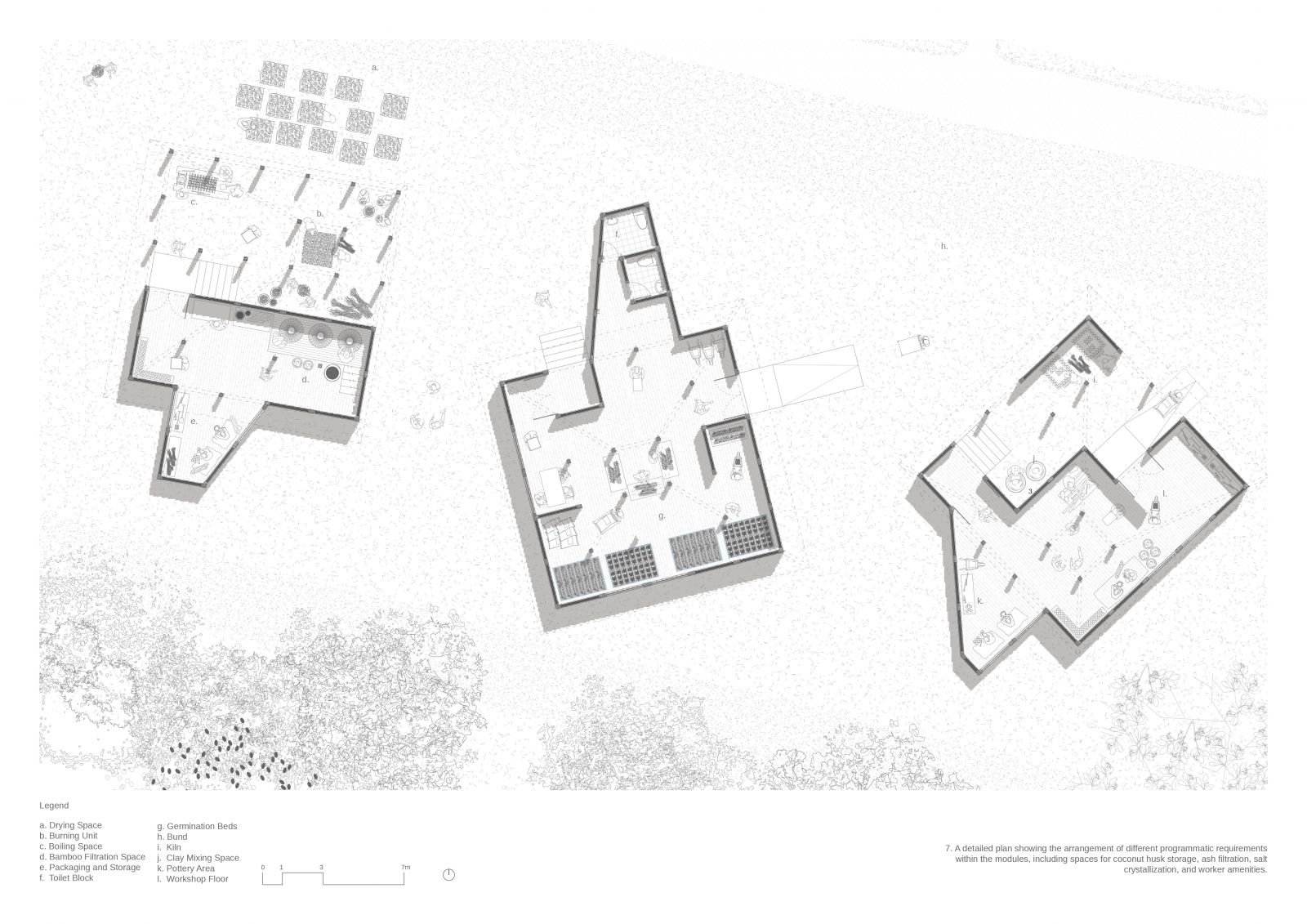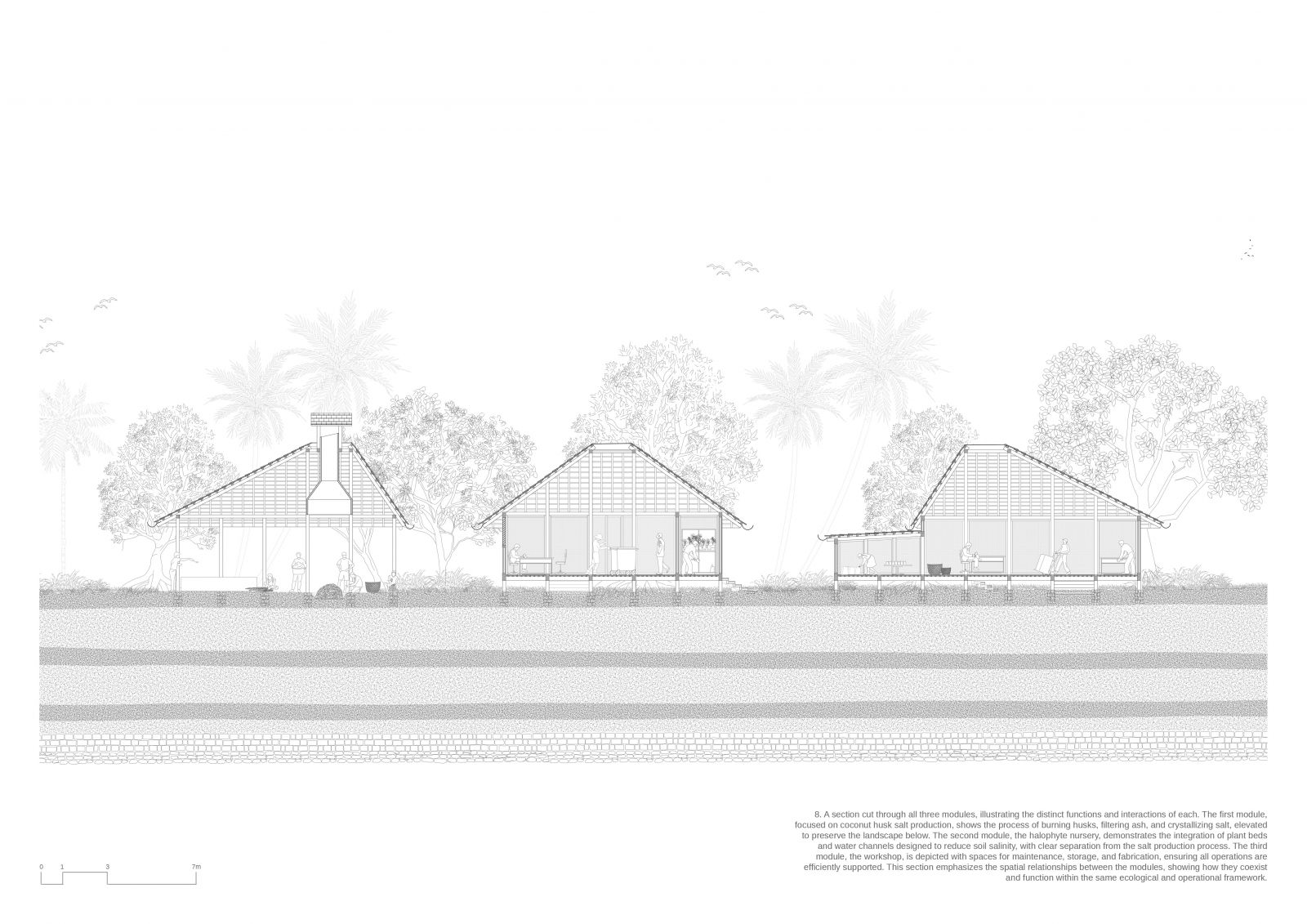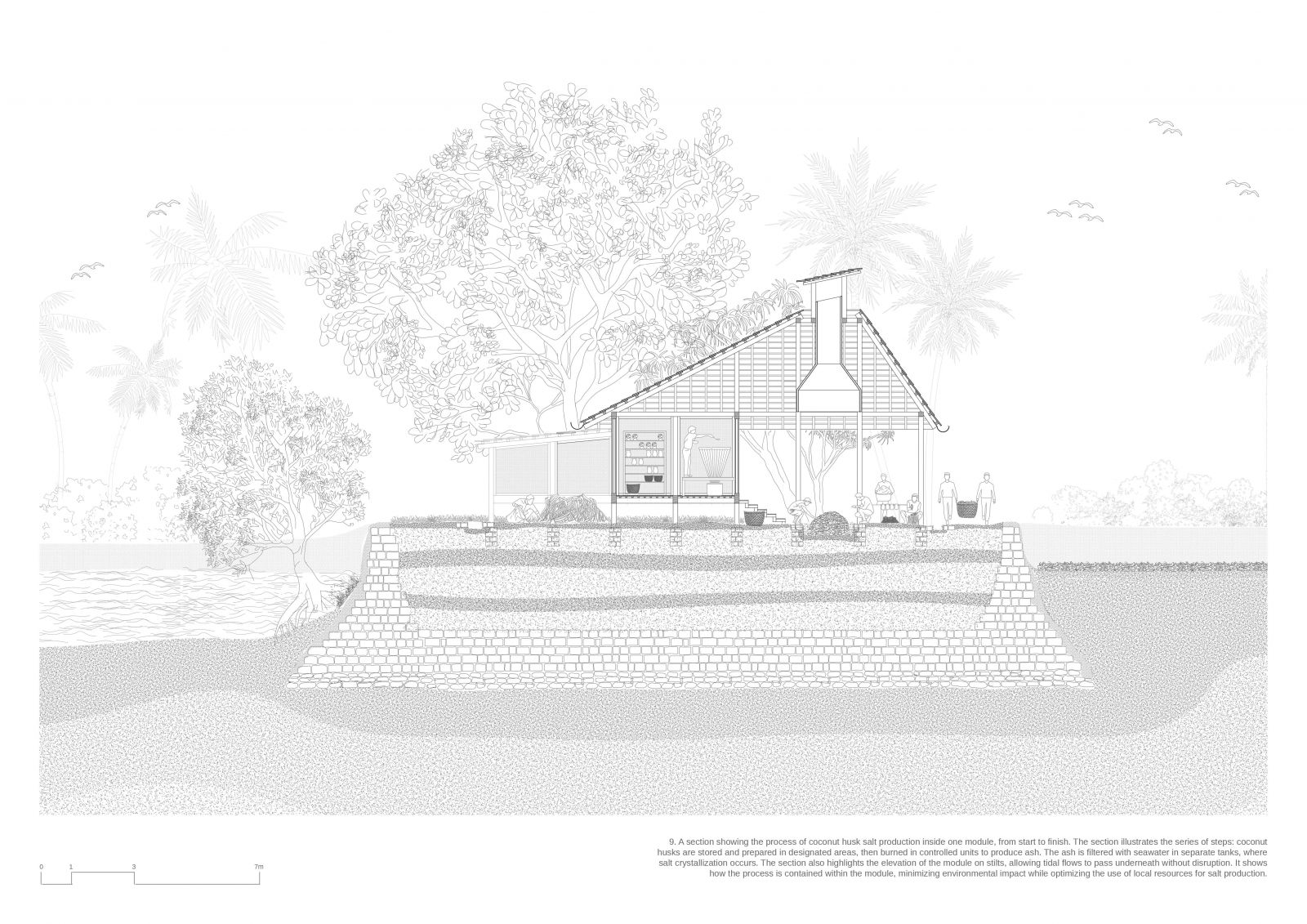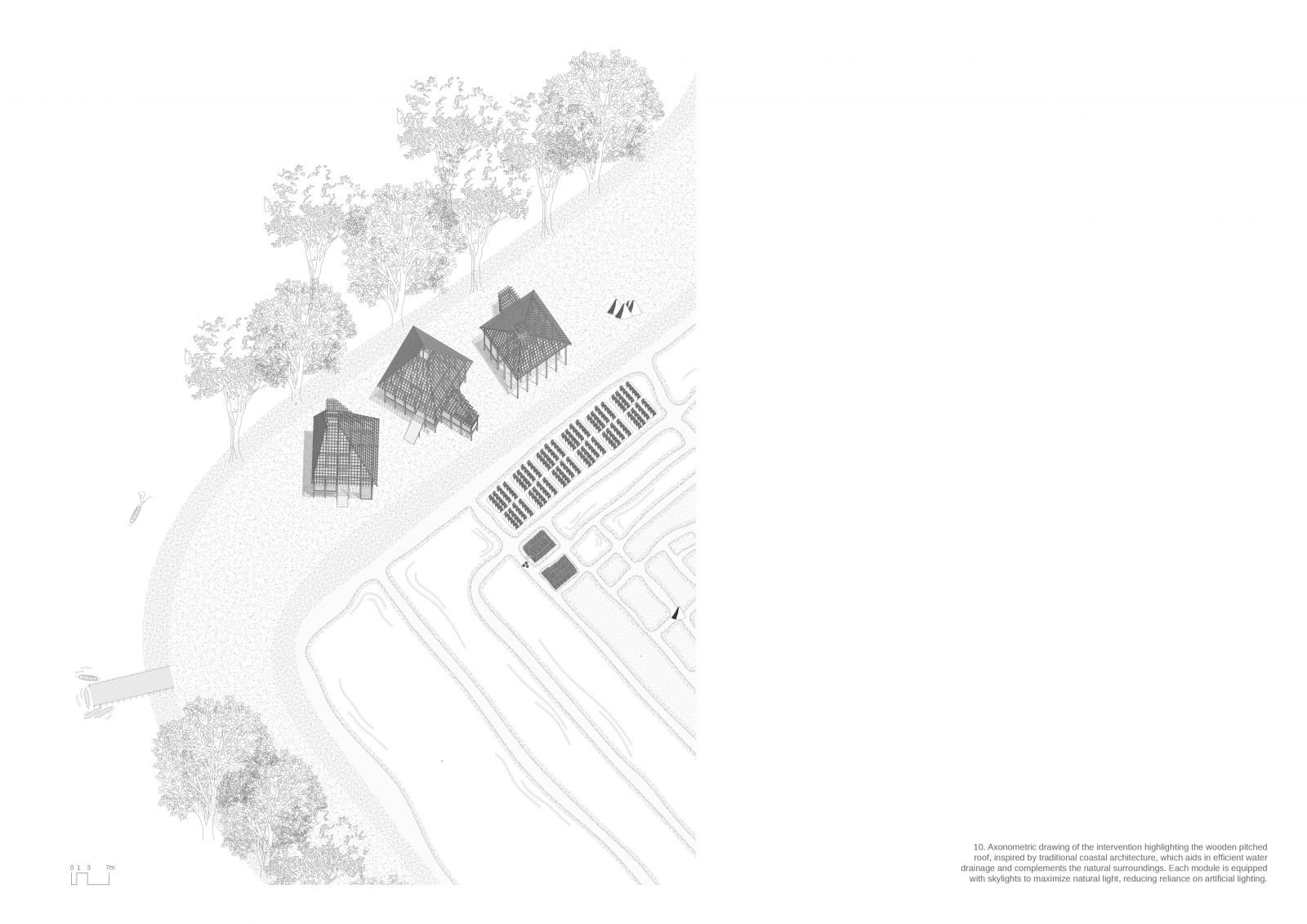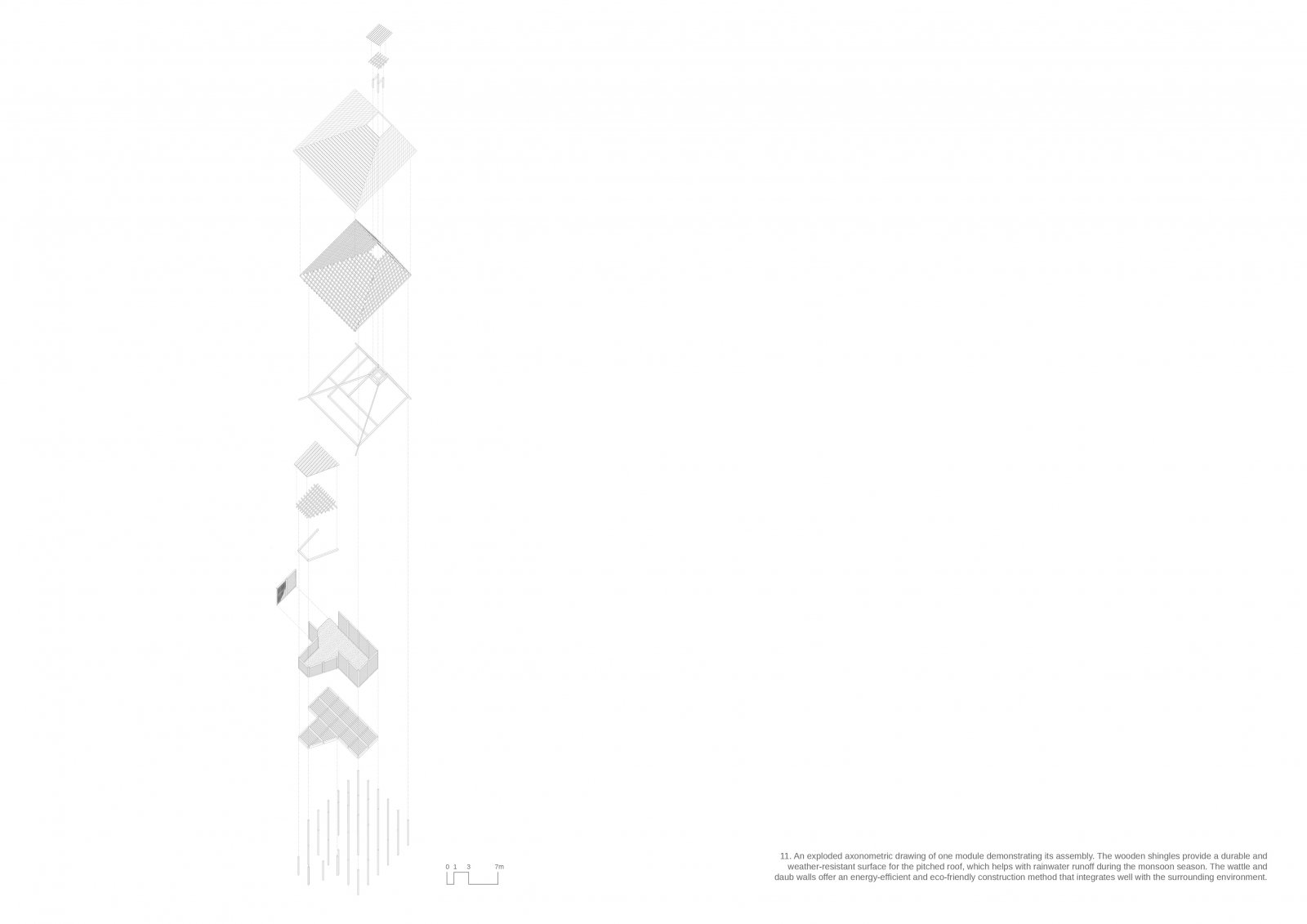Your browser is out-of-date!
For a richer surfing experience on our website, please update your browser. Update my browser now!
For a richer surfing experience on our website, please update your browser. Update my browser now!
The Khazan lands, a vital part of Goa's coastal ecosystem, have historically supported a community-driven commons system, where salt production, agriculture, and aquaculture coexist. However, over-exploitation, increased soil salinity, and shifting economic priorities have led to the deterioration of this delicate balance. This intervention aims to address these challenges by introducing land-efficient salt production methods and ecological restoration strategies, while preserving the community's traditional practices and supporting sustainable livelihoods. The intervention comprises three modules that work together to restore the Khazan ecosystem. The first module introduces an innovative salt production method using coconut husks, inspired by the traditional Tibuok salt process. This approach minimizes land use while creating mineral-rich salt through burning husks and filtering the resulting ash with seawater. The second module focuses on soil salinity reduction through a halophyte nursery, where salt-tolerant plants are cultivated to absorb excess salts, gradually restoring the soil for agricultural use. The third module is a central workshop designed to support maintenance of the Khazan bunds and other intervention components, offering spaces for repair, fabrication, and storage, ensuring the sustainability of the entire system. Together, these modules aim to rejuvenate the Khazan lands, foster community participation, and create economic opportunities while respecting local traditions.
View Additional Work